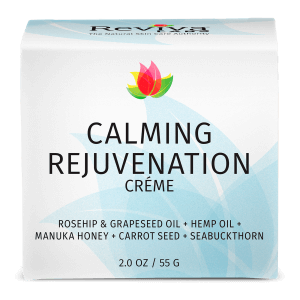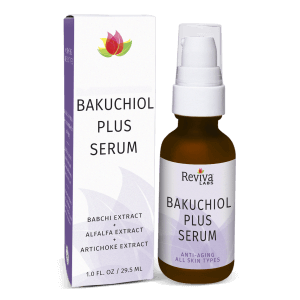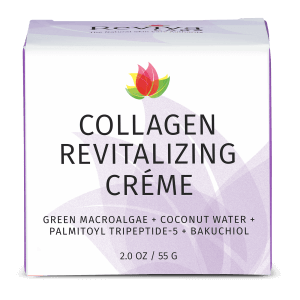Ingredients, Reviva Labs, Skin Care
The Best Oils for Dry Skin: Nourishment for Deep Hydration
Dry skin demands more than just surface moisture—it needs nutrient-rich oils that restore hydration, reinforce the skin barrier, and soothe irritation. While many skincare products promise hydration, facial oils provide an unmatched level of nourishment, helping to prevent moisture loss and maintain skin softness.
With so many oils to choose from, selecting the right one can be confusing. Some work best for deep hydration, while others offer lightweight moisture without clogging pores. Understanding how different oils interact with the skin can transform dry, flaky skin into a smooth, healthy-looking complexion.
Why Oils Are Essential for Dry Skin
Healthy skin contains natural lipids that act as a protective shield, preventing moisture loss and keeping skin plump and resilient. These lipids, including ceramides, cholesterol, and free fatty acids, naturally occur in the skin and play a crucial role in maintaining its integrity. When the skin’s moisture barrier becomes weak, it struggles to retain hydration, leading to tightness, flaking, and sensitivity.
Oils are rich in essential fatty acids, antioxidants, and vitamins that help strengthen the skin’s defenses. Essential fatty acids, such as linoleic and oleic acid, replenish the skin’s lipid barrier, improving hydration and reducing inflammation. Some oils, like avocado oil and olive oil, are loaded with oleic acid, which penetrates deeply to restore moisture in very dry skin. Others, like safflower oil and sunflower oil, are rich in linoleic acid, a key component in ceramide production, helping to support a healthy barrier and prevent transepidermal water loss. By applying these oils topically, the skin receives an extra boost of its naturally occurring protective elements, leading to improved resilience and hydration.
The Science Behind Natural Lipids and Essential Fatty Acids
The stratum corneum, the outermost layer of the skin, is composed of lipids that help maintain moisture balance and protect against external irritants. When these lipids are depleted, the skin becomes vulnerable to dryness and environmental damage. Essential fatty acids (EFAs), such as omega-3 and omega-6, play a crucial role in reinforcing the skin’s lipid barrier. Since the body cannot produce EFAs on its own, topical application through oils can replenish these vital components, leading to smoother, more resilient skin.
How Oils Help Reduce Water Loss and Maintain Hydration
One of the primary functions of facial oils is to act as occlusives, which create a protective barrier on the skin’s surface to prevent water from evaporating. When used in combination with humectants (like hyaluronic acid), oils can help draw moisture into the skin and lock it in for long-lasting hydration. The combination of an occlusive and a humectant ensures that moisture stays where it’s needed most—inside the skin barrier.
The Role of Antioxidants in Facial Oils
Many plant-based oils contain antioxidants, which help neutralize free radicals that cause premature aging and skin damage. Vitamin E, commonly found in sunflower and argan oil, supports skin repair and reduces oxidative stress. Carotenoids, found in rosehip and sea buckthorn oil, help brighten skin tone and enhance radiance. By incorporating oils rich in antioxidants into your routine, you can help defend your skin against environmental aggressors and maintain a youthful glow.
The Long-Term Benefits of Facial Oils
In addition to providing immediate relief for dry skin, facial oils offer long-term benefits that improve the overall health of your skin. Regular use of facial oils can:
- Strengthen the skin’s protective barrier to reduce moisture loss.
- Improve elasticity and firmness, reducing the appearance of fine lines.
- Enhance collagen production, promoting a youthful complexion.
- Protect the skin from environmental stressors, including pollution and UV damage.
- Provide soothing benefits for those with conditions like eczema and rosacea.
- Assist in reducing inflammation, making them suitable for reactive skin types.
Olive Oil vs. Avocado Oil: Which One is Better?
Both olive oil and avocado oil are deeply nourishing options for dry skin, offering intense hydration and a wealth of skin-benefiting nutrients. However, they work slightly differently and cater to different skin needs.
Olive Oil: A Time-Tested Hydration Staple
Olive oil has been used for centuries in Mediterranean skincare for its rich fatty acid profile and antioxidant content. Extracted from olives, this oil is particularly beneficial for dry skin and mature skin types due to its high oleic acid content, which penetrates deeply to reinforce the skin barrier.
- Contains antioxidants like vitamin E and polyphenols, helping to protect against free radical damage.
- Supports skin elasticity and moisture retention, making it a great anti-aging ingredient.
- Works best as an occlusive, meaning it helps lock in moisture when applied over other hydrating products.
- Ideal for very dry or cold climates, providing a long-lasting moisture shield.

Avocado Oil: Deep Hydration That Absorbs Quickly
Avocado oil is another deeply nourishing and reparative oil, extracted from the pulp of the avocado fruit. It contains a blend of essential fatty acids, vitamins, and antioxidants that make it an excellent choice for severely dry, sensitive, or compromised skin.
- Rich in oleic acid and vitamin E, helping to soften and condition the skin.
- Contains phytosterols, which soothe irritation and help rebuild the skin barrier.
- Absorbs faster than olive oil, making it more versatile for both morning and evening skincare routines.
- Boosts collagen production, which can help improve skin texture and elasticity over time.
If you have extremely dry, damaged, or sensitive skin, avocado oil is a fantastic choice due to its ability to penetrate deeply and restore hydration at a cellular level.
Safflower vs. Sunflower Oil: Which One is Better?
Safflower and sunflower oils are both plant-based, lightweight, and non-comedogenic, but they offer slightly different benefits.
Safflower Oil: A Gentle Skin Barrier Booster
Safflower oil is derived from the seeds of the safflower plant, which is primarily grown in regions such as North America, India, and parts of the Middle East. It has been used for centuries in traditional medicine and skincare due to its high concentration of linoleic acid, which helps strengthen the skin’s moisture barrier and improve hydration. Today, it remains a popular ingredient in natural skincare formulations for its ability to nourish without clogging pores.
- Rich in linoleic acid, a fatty acid that strengthens the skin’s moisture barrier.
- Absorbs quickly and leaves skin feeling soft, not greasy.
- Helps soothe redness and irritation while supporting overall hydration.
- Ideal for combination skin types who need hydration without an overly greasy finish.
- Works well in daytime skincare routines, especially for those layering additional products.
Sunflower Oil: A Vitamin E Powerhouse
Sunflower oil is extracted from the seeds of the sunflower plant and is commonly sourced from regions such as Eastern Europe, Argentina, and the United States. It is an excellent source of linoleic acid and vitamin E, which support long-term skin health by reinforcing the skin’s protective barrier and preventing moisture loss.
- Contains a balance of oleic and linoleic acids, making it ideal for deep hydration.
- Naturally rich in vitamin E, a potent antioxidant that helps protect skin from environmental damage.
- Boosts ceramide production, reinforcing the skin’s protective barrier.
- Works well for nighttime hydration, providing long-lasting moisture benefits.
- Supports skin elasticity, making it excellent for those concerned with aging.
Common Myths About Facial Oils
Many people hesitate to use facial oils due to misconceptions about their effects on the skin. Here are some common myths debunked:
- Myth: Oils clog pores and cause acne.
- Truth: Not all oils are comedogenic. Lightweight oils like safflower, sunflower, and rosehip are non-comedogenic and actually help balance oil production.
- Myth: Oils make the skin greasy.
- Truth: When used properly, oils absorb into the skin, delivering hydration without leaving an oily residue.
- Myth: Oils should only be used on dry skin.
- Truth: Even oily skin can benefit from the right oils, as they help regulate sebum production and strengthen the skin barrier.
Choosing the Right Oil for Your Skin Type
To help determine which oil is best for you, here’s a quick comparison:
| Oil | Best For | Key Benefits |
| Safflower | Combination/Oily | Lightweight, absorbs quickly, reduces inflammation |
| Sunflower | Dry/Sensitive | Rich in vitamin E, supports skin elasticity |
| Olive | Very Dry/Mature | Deep hydration, high in antioxidants |
| Avocado | Extremely Dry | Penetrates deeply, helps repair skin barrier |
The Role of Specialty Serums in Dry Skin Care
Dry skin often needs more than just surface hydration—it requires deep nourishment, protection, and active ingredients that support the skin’s natural repair processes. While oils play an essential role in reinforcing the skin’s lipid barrier, targeted serums can penetrate deeper, delivering concentrated hydration and powerful botanical extracts. Reviva Labs offers two highly effective serums that address the key concerns of dry, stressed skin: Bakuchiol Plus Serum for hydration and anti-aging benefits and Calming Renewal Serum for deep nourishment and barrier support.

Reviva Labs Bakuchiol Plus Serum: A Gentle Yet Powerful Anti-Aging Solution
Retinol is well known for its skin-renewing effects, but for those with dry or sensitive skin, it can be too harsh, leading to redness, peeling, and irritation. Bakuchiol, a plant-derived alternative to retinol, provides similar benefits without the associated sensitivity, making it an ideal choice for those with dry skin who still want to combat the signs of aging.
- Natural Retinol Alternative – Bakuchiol works similarly to traditional retinol by encouraging skin cell turnover, reducing the appearance of fine lines and wrinkles, and improving overall skin texture. Unlike retinol, it does not cause dryness or irritation, making it an excellent option for those with already compromised skin barriers.
- Hydrating and Lightweight – Unlike traditional anti-aging treatments that can dry out the skin, this serum is formulated with safflower seed oil, a non-comedogenic oil rich in linoleic acid that provides essential hydration without clogging pores.
- Antioxidant Protection and Elasticity Boost – The inclusion of alfalfa extract and artichoke leaf extract offers additional support by delivering a potent blend of antioxidants that help protect the skin from environmental stressors while improving elasticity and firmness.
- Promotes a Healthy Glow – Because it enhances skin renewal without stripping moisture, this serum helps maintain a smooth, radiant complexion while working to diminish signs of aging.
This serum is perfect for those seeking an anti-aging treatment that actively hydrates while improving skin texture—making it a must-have for dry skin that still wants to retain a youthful, supple glow.
Reviva Labs Calming Renewal Serum: A Nutrient-Rich Solution for Irritated, Stressed Skin
Dry skin is often accompanied by redness, irritation, and an overall feeling of discomfort. This can be due to environmental stressors, dehydration, or a compromised skin barrier. Reviva Labs Calming Renewal Serum is formulated to address these concerns by combining soothing botanical extracts with deeply hydrating oils to restore balance and strengthen the skin barrier.
- A Blend of Hydrating and Calming Oils – This serum features a luxurious combination of jojoba, hemp, argan, and rosehip oils, all of which are rich in essential fatty acids that help lock in moisture and provide long-lasting hydration. These oils not only replenish the skin but also help reduce the appearance of fine lines and rough texture.
- Potent Soothing Botanicals – Dry and irritated skin can benefit from natural anti-inflammatory ingredients. Turmeric, ashwagandha, and shiitake extracts provide antioxidant protection and work to calm redness, reduce irritation, and restore the skin’s natural equilibrium.
- Supports Skin Barrier Function – Many dry skin issues stem from a weakened barrier that struggles to retain moisture. The rich essential fatty acids and plant extracts in this serum help fortify the skin’s defenses, ensuring it stays hydrated, resilient, and less prone to sensitivity.
- Ideal for Reactive and Stressed Skin – Whether skin is dealing with winter dryness, exposure to environmental pollutants, or sensitivities caused by other skincare products, this serum offers relief, delivering immediate nourishment while promoting long-term skin health.
How to Incorporate Oils into Your Routine
For optimal results, follow these steps:
- Cleanse: Start with a gentle cleanser to remove impurities.
- Tone: Use a toner to balance the skin’s pH.
- Apply Serum: If using a water-based serum, apply it before the oil.
- Massage in Oil: Apply 2-3 drops of your chosen oil, pressing it gently into the skin.
- Seal with Moisturizer: Lock in hydration with a moisturizer for long-lasting benefits.
Frequently Asked Questions
- Can I use facial oils if I have acne-prone skin?
Yes! Non-comedogenic oils like safflower, sunflower, and rosehip oil help balance sebum production and provide hydration without clogging pores. - Should I use facial oils before or after moisturizer?
Facial oils should be applied after water-based serums but before heavy creams or moisturizers to lock in hydration effectively. - How often should I use facial oils?
This depends on your skin type. Dry skin types may benefit from daily use, while combination or oily skin types may prefer using oils 2-3 times a week. - Can I mix oils together for better results?
Yes! Mixing complementary oils, such as argan and rosehip for anti-aging or jojoba and safflower for lightweight hydration, can enhance their benefits. - Are there specific oils that work best for aging skin?
Yes! Oils rich in antioxidants, like avocado, olive, and sea buckthorn oil, help combat free radicals and support collagen production for firmer skin.
Final Thoughts on The Benefits of Using Facial Oils
Incorporating the right facial oils into your skincare routine can enhance hydration, improve resilience, and provide essential protection against environmental stressors. Whether you choose olive oil, avocado oil, safflower oil, or sunflower oil, each one offers distinct benefits tailored to different skin needs. Natural plant-based oils and essential fatty acids play a pivotal role in replenishing the skin’s lipid barrier, supporting moisture retention, and preventing dehydration.
High-quality oils and serums, like those from Reviva Labs, go beyond basic hydration. They fortify the skin barrier, ensuring long-lasting moisture and protection. These formulations work by mimicking the skin’s natural oils, allowing for better absorption while enhancing softness and elasticity. Infused with ingredients that promote elasticity, nourishment, and repair, they help skin achieve a natural, healthy glow that lasts year-round.
A balanced approach to skincare, incorporating facial oils consistently, helps maintain an even complexion, reduces visible signs of premature aging, and keeps skin resilient against environmental aggressors. Whether applied alone or layered with other skincare treatments, these oils provide the nourishment necessary for a vibrant, radiant complexion.










